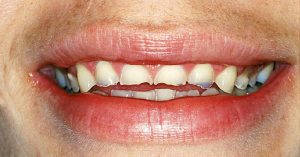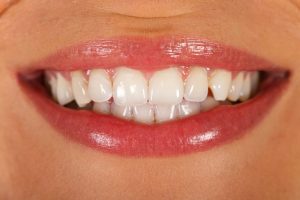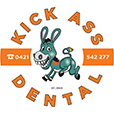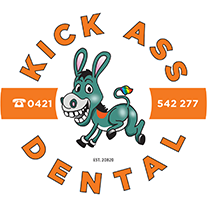What Causes Teeth to Lose Enamel?
Having strong and healthy teeth is essential for maintaining oral hygiene and overall well-being. Enamel, the outermost layer of the teeth, plays a crucial role in protecting them from damage and decay. However, various factors can lead to the erosion and loss of tooth enamel, compromising dental health. In this article, we will explore the primary causes of enamel loss and provide insights into how to prevent it.
Understanding Tooth Enamel
To comprehend why tooth enamel loss occurs, it is important to understand the structure and function of enamel. Enamel is the hardest substance in the human body, serving as a protective shield for the underlying dentin and pulp of the teeth. It acts as a barrier against the effects of acid, bacteria, and temperature changes.
Enamel is composed of minerals, primarily hydroxyapatite, which gives it its strength. Despite its strength, enamel can gradually wear away over time due to a variety of factors.

Causes of Tooth Enamel Loss
1. Acidic Foods and Drinks
An acidic diet can significantly contribute to the erosion of tooth enamel. Consuming foods and beverages with high acidity levels, such as citrus fruits, carbonated drinks, and vinegar-based dressings, can lead to enamel erosion over time. Acidic substances soften the enamel, making it more susceptible to wear and tear.
Prevention tip: To minimize enamel erosion, it is advisable to limit the consumption of acidic foods and drinks. If you do consume them, drink water afterward to rinse away the acids and wait at least 30 minutes before brushing your teeth.
2. Poor Oral Hygiene
Inadequate oral hygiene practices can contribute to enamel loss. Insufficient brushing, infrequent flossing, and neglecting regular dental check-ups can allow plaque and bacteria to accumulate on the teeth. The acids produced by these bacteria can gradually erode the enamel, leading to tooth decay and enamel loss.
Prevention tip: Maintaining proper oral hygiene is crucial in preventing enamel loss. Brush your teeth at least twice a day with a fluoride toothpaste, floss daily, and visit your dentist regularly for professional cleanings and check-ups.
3. Tooth Grinding (Bruxism)
Bruxism, commonly known as tooth grinding or clenching, can cause enamel to wear down over time. The excessive force exerted during grinding puts immense pressure on the teeth, leading to enamel erosion. Bruxism often occurs during sleep and can be a result of stress, misaligned teeth, or an abnormal bite.
Prevention tip: If you suspect that you grind your teeth, consult your dentist. They can recommend wearing a custom-made mouthguard to protect your teeth from grinding and prevent enamel loss.
4. Acid Reflux and GERD
Acid reflux and gastroesophageal reflux disease (GERD) can contribute to enamel erosion. When stomach acids flow back into the mouth, they can come into contact with the teeth, eroding the enamel over time. Individuals with frequent acid reflux or GERD are at a higher risk of enamel loss.
Prevention tip: If you suffer from acid reflux or GERD, it is important to manage the condition under the guidance of a healthcare professional. They can recommend lifestyle changes, medication, or other interventions to reduce acid reflux and protect your teeth.
3>5. Dry Mouth (Xerostomia)
Saliva plays a crucial role in maintaining oral health by neutralizing acids and washing away food particles and bacteria. However, individuals with dry mouth, a condition known as xerostomia, have reduced saliva production. This can lead to a higher risk of enamel erosion and tooth decay since the protective effects of saliva are diminished.
Prevention tip: To alleviate dry mouth, stay hydrated by drinking plenty of water throughout the day. Chewing sugar-free gum or using saliva substitutes can also help stimulate saliva production. If dry mouth persists, consult your dentist or healthcare professional for further evaluation and treatment options.
Protecting and Strengthening Enamel
While enamel loss cannot be reversed, taking preventive measures can help protect and strengthen your existing enamel. Here are some additional tips:

1. Use a Fluoride Toothpaste
Fluoride is a mineral that helps strengthen tooth enamel and protect against decay. Make sure to use a toothpaste that contains fluoride and brush your teeth thoroughly at least twice a day.
2. Practice Proper Brushing Techniques
Brushing your teeth with the correct technique is vital for maintaining enamel health. Use a soft-bristled toothbrush and gentle circular motions to avoid aggressive brushing, which can contribute to enamel wear.
3. Limit Acidic and Sugary Foods
Reducing your consumption of acidic and sugary foods can help minimize enamel erosion. Opt for a balanced diet rich in fruits, vegetables, and dairy products that promote overall dental health.
4. Drink Water and Rinse
After consuming acidic foods or drinks, rinse your mouth with water to help wash away acids and reduce their contact with your teeth. This can help mitigate the potential damage to the enamel.
5. Use a Mouthguard for Teeth Grinding
If you grind your teeth during sleep, wearing a mouthguard can help protect your enamel from excessive wear. Consult your dentist for a customized mouthguard that fits your teeth properly. For tooth enamel solutions see here.
6. Visit Your Dentist Regularly
Regular dental check-ups are essential for early detection and prevention of enamel loss. Your dentist can assess your oral health, provide professional cleanings, and offer personalized recommendations to maintain strong enamel.
Conclusion
Preserving tooth enamel is crucial for maintaining good oral health and preventing dental issues such as tooth decay and sensitivity. By understanding the causes of enamel loss and implementing preventive measures, you can protect and strengthen your enamel, ensuring a healthy and confident smile for years to come.
Remember to maintain a balanced diet, practice proper oral hygiene, address teeth grinding or acid reflux issues promptly, and visit your dentist regularly. By taking proactive steps, you can safeguard your enamel and enjoy a lifetime of healthy teeth.





